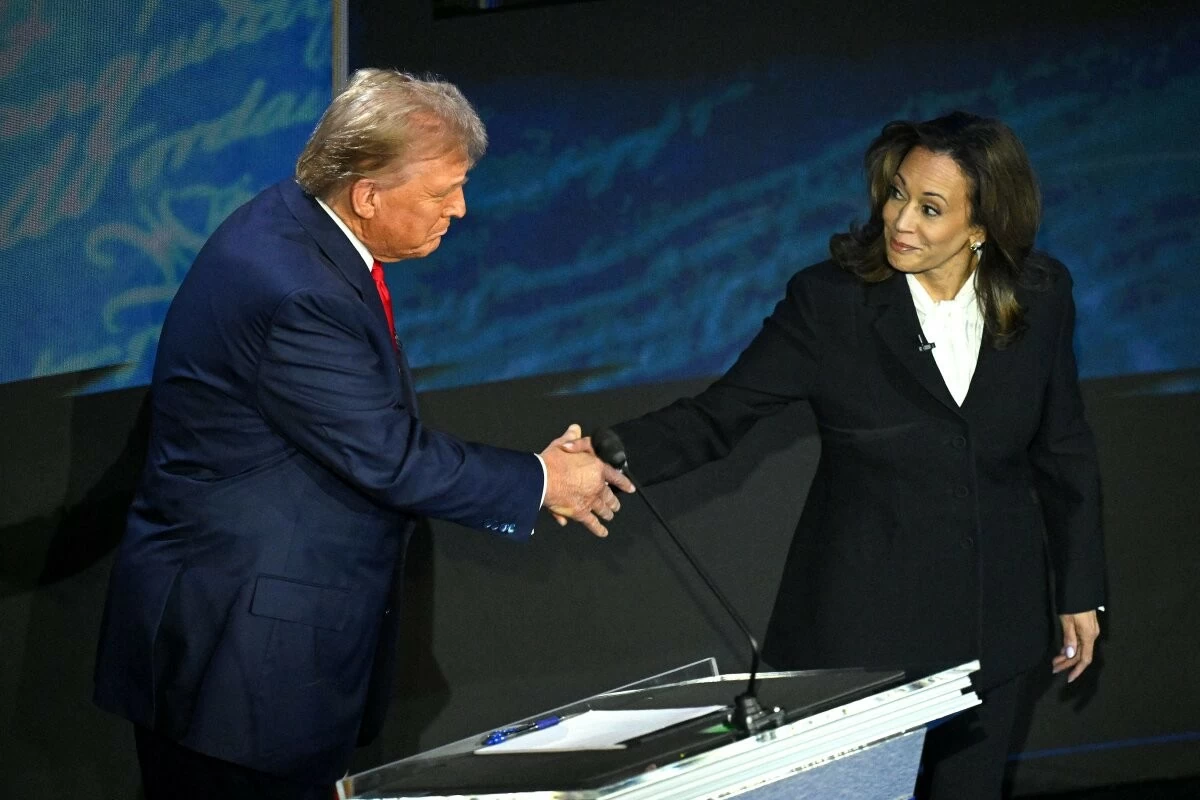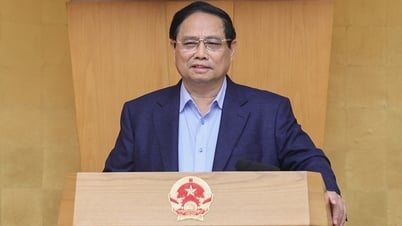Over the past 15 years, the United States has achieved incredible economic success compared to other countries. Through ups and downs, the United States has maintained its title as the world's largest economy, regardless of who is President.

| Former President Donald Trump and Vice President Kamala Harris shake hands before the debate in Philadelphia, September 10. (Source: Getty Images) |
Firmly hold the top position
Looking back to 2009, there have been two major disruptions to the economy over this period: the financial crisis before Barack Obama took office and the Covid-19 pandemic that occurred during Donald Trump’s time in office.
The 2007-2008 financial crisis made people in the world's largest economy fear the collapse of the entire banking system. At that time, the world's leading automobile corporation GM and Chrysler - a famous American automobile company - declared bankruptcy for reorganization. Meanwhile, the housing market fell out of control. With the Covid-19 pandemic, the US and global economies were more directly affected. The blockade to prevent the spread of Covid-19, the difficult supply chain situation caused chaos in the labor market. Thanks to economic stimulus, the world's largest economy quickly escaped the recession caused by the pandemic and recovered strongly. Since 1990, the US's per capita gross domestic product (GDP) has grown steadily every year, except in 2009 due to the impact of the financial crisis. Last year, the country's GDP per capita was more than $81,000. The US's GDP per capita is three times that of China and eight times that of India. In 2023, the US's overall GDP will be $27 trillion, accounting for a quarter of global GDP, keeping it the world's largest economy. China is second at $17.66 trillion, followed by Germany and Japan.Inflation - a "tough" problem for every President
Since January 2009, inflation in the US has been rising sharply. When Mr. Obama took office, inflation was at zero, falling to negative levels. In the first three years of Mr. Trump's term, inflation in the world's largest economy was quite quiet. When the pandemic first occurred, inflation fell even further. From January 2017 to January 2021, the US consumer price index (CPI) increased by a total of 7.8%. Under Mr. Biden, inflation has skyrocketed. Inflation has recently eased, but the cumulative effects are still there. From January 2021 to September 2024, consumer prices in the US increased by nearly 20%. That period of high inflation led to a skyrocketing cost of living for many Americans. Consumer prices are rising, and voters are very unhappy about it. This is one of the most important issues this year and could decide the elections in the states. This is also one of the most difficult things for any President of the world's largest economy to control. Experts note that the economy remains a topic of interest to many voters among the issues put on the "scale" of the US election. Data from Gallup shows that up to 52% of voters say the economy will play a decisive role in their vote in November. Currently, the majority of voters rate Donald Trump as having a better ability to handle the economy than his Democratic opponent, Kamala Harris, with support rates of 54% to 45% respectively. The race between Vice President Kamala Harris and former President Donald Trump will not only decide the future and path the US will take in the next 4 years, but also have a profound impact on global politics and the economy. The question being asked, however, is whether the economy — a major concern for voters — really “cares” who becomes President?Baoquocte.vn
Source: https://baoquocte.vn/us-2024-economic-management-will-it-really-quan-tam-ai-tro-thanh-tong-thong-290897.html




![[Photo] General Secretary To Lam visits exhibition of achievements in private economic development](https://vphoto.vietnam.vn/thumb/1200x675/vietnam/resource/IMAGE/2025/5/18/1809dc545f214a86911fe2d2d0fde2e8)

![[Photo] Ready for the top competitions of Vietnamese table tennis](https://vphoto.vietnam.vn/thumb/1200x675/vietnam/resource/IMAGE/2025/5/18/9c547c497c5a4ade8f98c8e7d44f5a41)




























![[Photo] National conference to disseminate and implement Resolution No. 66-NQ/TW and Resolution No. 68-NQ/TW of the Politburo](https://vphoto.vietnam.vn/thumb/1200x675/vietnam/resource/IMAGE/2025/5/18/adf666b9303a4213998b395b05234b6a)


















































![[Podcast] - War Scars](https://vphoto.vietnam.vn/thumb/402x226/vietnam/resource/IMAGE/2025/5/18/9a131452559b41c9be4dc3798d0a4da0)











Comment (0)